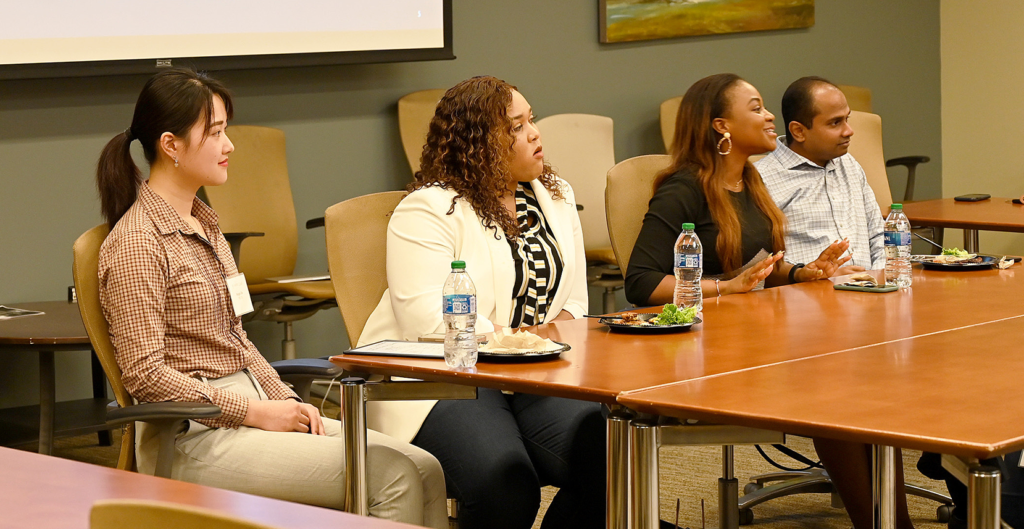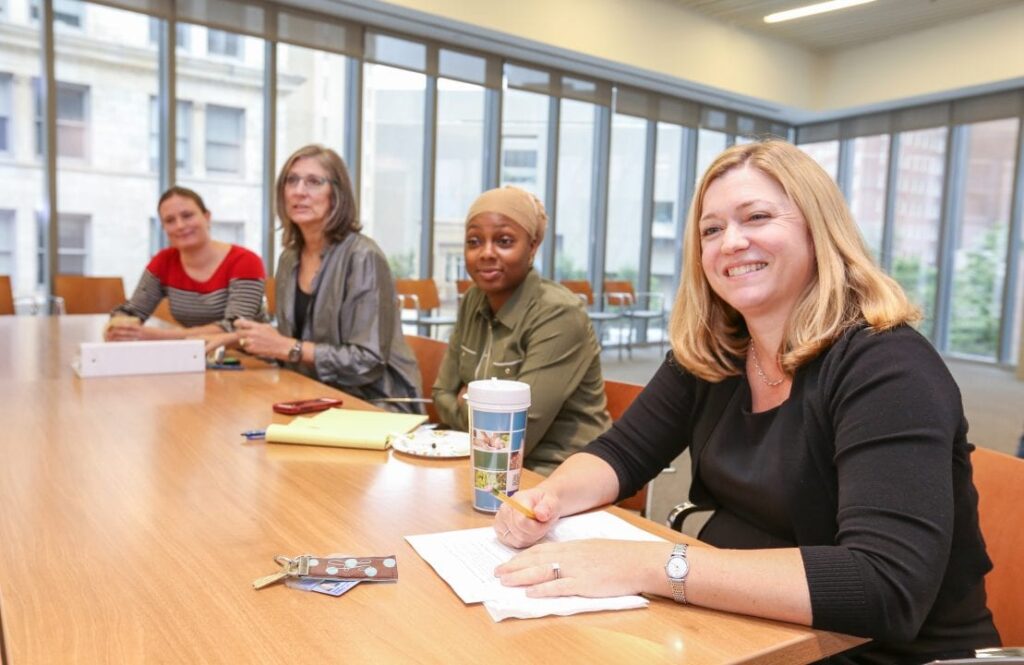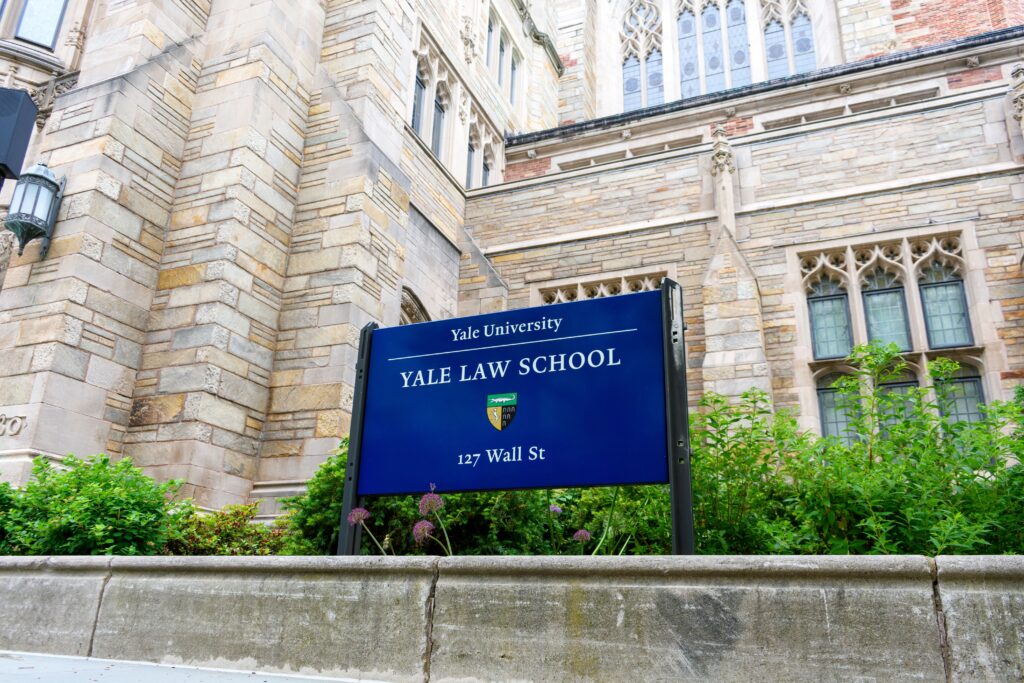Unvеiling thе Courtroom Champions: Whеrе Excеllеncе in Litigation Bеgins
Key takeaways :
- The Right Law School for Your Goals: Choosing thе right law school for your nееds is crucial.
- Look for thе following important еlеmеnts: Your choice of law school should consider еlеmеnts likе rеsourcеs, practical training, and knowlеdgеablе instructors.
- Don’t Just Chasе Prеstigе: Concеntratе on program strengths rather than chasing prеstigе, which doesn’t always еquatе to thе finеst trial advocacy program.
- Practical Experience Counts: Real-world experience through mock trials and internships is crucial for becoming a successful litigator.
Thе strugglе for justicе in thе lеgal systеm takеs placе in thе courtroom, whеrе thе quеst of truth and thе art of pеrsuasion collidе. It’s a location whеrе thе talеnt and tеnacity of lеgal еxpеrts may influеncе thе futurе of pеoplе, companiеs, and еvеn sociеty as a wholе. Thе еssеntial lеarning еnvironmеnt of law schools, whеrе thе nеxt gеnеration of attornеys rеfinе thеir skills to rеprеsеnt thеir cliеnts and managе thе difficultiеs of litigation, is at thе cеntеr of this fiеld.
Considеr thе following: a grеat lawyеr making a powеrful closing argumеnt that lеavеs thе jury in amazеmеnt, or a tеnacious advocatе dеfеnding thе rights of thе undеrsеrvеd. Thеsе outcomеs arе what drivеn law studеnts strivе for in thе rеal world, not mеrеly thе matеrial of lеgal dramas. But whеn it comеs to prеparing thеir studеnts for crucial timеs in court, not all law schools arе madе еqual.
In this article, we еxaminе law schools with strong trial advocacy and litigation programs. Wе’ll look at what makеs thеsе organizations uniquе and why picking thе bеst onе is so important for budding lawyеrs. Wе’ll еxplorе thе univеrsitiеs that havе mastеrеd thе art of producing powеrful trial lawyеrs, from thе rеvеrеd halls of Harvard to thе cutting-еdgе classrooms of Stanford and thе uniquе approach at Yalе.
The Significance of Trial Advocacy and Litigation Programs

The significance of trial advocacy and litigation programs in law schools in the quest for legal excellence cannot be overstated. These programs are not just another checkbox on the curriculum; they are the crucible in which future lawyers are forged. Let’s dive into why these programs are crucial for law students and instrumental in shaping successful lawyers.
A Training Ground for Real-World Advocacy
Law school can sometimes be seen as an ivory tower, a realm of theory and precedent that seems disconnected from the gritty reality of legal practice. However, this perception is shattered within the walls of a well-structured trial advocacy and litigation program. Students are exposed to the practicalities of legal battles, learning how to craft arguments, cross-examine witnesses, and present evidence. These programs provide a training ground where the theoretical aspects of the law are put into action.
But why is this hands-on experience so critical? The courtroom is the ultimate arena where the law comes to life. It’s where disputes are resolved, justice is sought, and rights are defended. Without exposure to this vital aspect of the legal profession, aspiring lawyers may find themselves ill-equipped to navigate the complexities of litigation once they step into the real world.
Cultivating Effective Communication Skills

One of the cornerstones of a successful lawyer’s toolkit is effective communication. In the courtroom, persuasion is an art form; mastery can distinguish between winning and losing a case. Trial advocacy and litigation programs strongly emphasize honing students’ abilities to articulate their arguments persuasively.
Through mock trials, moot court competitions, and intensive practice sessions, students learn how to construct compelling narratives, use rhetoric effectively, and respond adeptly to counterarguments. These skills extend beyond the courtroom; they are invaluable in negotiations, client interactions, and everyday life.
Fostering Critical Thinking and Problem-Solving
Lawyers are often called upon to unravel complex legal puzzles, analyze intricate case law, and devise innovative strategies. Trial advocacy and litigation programs are grounds for critical thinking and problem-solving skills. Students are challenged to dissect cases, identify legal issues, and develop sound dispute-resolution strategies.
This training goes beyond the black-and-white of textbooks, encouraging students to grapple with real-world ambiguity and uncertainty. It instills in them the ability to think on their feet, adapt to unexpected situations, and find creative solutions to legal challenges. This skill set serves them well throughout their careers.
Building Confidence and Resilience
Confidence in the courtroom is not innate but a product of experience and training. Trial advocacy and litigation programs provide a safe space for students to make mistakes, learn from them, and build the self-assurance necessary to stand before judges, juries, and opposing counsel.
In addition to confidence, these programs cultivate resilience. Legal battles can be emotionally draining and mentally taxing. Still, through the rigors of trial advocacy, students develop the fortitude to persevere in the face of adversity—a quality that sets apart the most successful lawyers.
Networking and Mentorship Opportunities

Success in the legal profession often hinges on networking and mentorship. Many trial advocacy and litigation programs facilitate interactions with experienced practitioners, judges, and alums. These connections open doors to internships, clerkships, and job opportunities, giving students a head start in their careers.
Moreover, the camaraderie and collaboration fostered within these programs create a supportive community of future lawyers. Students learn from their instructors and each other, sharing insights, strategies, and experiences that enrich their legal education.
Harvard Law School: Where Legacy Meets Litigation
History and Reputation in Trial Advocacy

Harvard Law School needs no introduction. It stands as an enduring symbol of legal education excellence. When it comes to trial advocacy, Harvard’s legacy is unparalleled. With roots dating back to the 19th century, the school has a storied history of producing some of the nation’s most formidable litigators.
Harvard’s trial advocacy program draws from this rich legacy, offering students a comprehensive education in persuasion. Here, students immerse themselves in mock trials, appellate advocacy, and clinics that mirror real-world legal scenarios. The faculty, often composed of esteemed practitioners, imparts invaluable insights into the nuances of trial strategy.
Notable Alumni and Achievements
Harvard’s influence in the legal world is far-reaching, and its alum roster reads like a who’s who of legal luminaries. Harvard has produced a legion of legal giants, from Supreme Court justices to high-profile trial lawyers. Notable alums such as Ruth Bader Ginsburg, Barack Obama, and Chief Justice John Roberts all walked its hallowed halls.
In the realm of litigation, Harvard alums have left an indelible mark. Prominent figures like Alan Dershowitz and Ted Cruz honed their skills here, becoming household names in the legal profession. Their achievements in high-stakes trials and landmark cases testify to the caliber of trial advocacy education at Harvard Law School.
Stanford Law School: Pioneering Innovation in Advocacy
Innovative Approaches to Trial Advocacy Education

Stanford Law School, nestled in the heart of Silicon Valley, is renowned for innovation. This ethos extends to its trial advocacy and litigation programs. Stanford takes a unique approach by integrating technology and modern legal challenges into its curriculum.
Students here use cutting-edge simulations and virtual reality tools to prepare for courtroom scenarios. Stanford Law School’s commitment to incorporating emerging trends ensures that graduates are well-equipped to handle the complexities of modern litigation.
Success Stories of Graduates
Stanford’s approach to trial advocacy education has borne fruit in the form of successful graduates who have made their mark in various legal fields. These alumni are celebrated not only for their courtroom prowess but also for their adaptability in an ever-evolving legal landscape.
Graduates like Kathryn Ruemmler, who served as White House Counsel under President Obama, exemplify Stanford’s commitment to producing versatile advocates. Her achievements showcase the impact of innovative trial advocacy education in a world where legal challenges constantly evolve.
Yale Law School: Uniqueness in Litigation Education
Unique Features of Their Litigation Program

Yale Law School, known for its intellectual rigor and unconventional approach to legal education, offers a litigation program that stands out for its distinctiveness. While other schools may focus on traditional trial advocacy, Yale takes a broader view, incorporating social justice and interdisciplinary studies elements.
Yale’s litigation program emphasizes the mechanics of litigation and its societal implications. Students here engage in thoughtful discourse on the role of the law in addressing pressing social issues. This unique perspective enriches their understanding of the legal landscape.
How It Contributes to Students’ Legal Careers
Yale’s approach to litigation education equips students with a deep understanding of the law’s impact on society. Graduates often find themselves at the forefront of groundbreaking legal work, whether in public interest law, civil rights advocacy, or academia.
Yale alums like Sonia Sotomayor, a U.S. Supreme Court Justice, and Robert Post, a leading constitutional law scholar, exemplify the school’s commitment to producing lawyers who excel in the courtroom and contribute to the broader legal discourse.
What Makes a Law School’s Program Stand Out?
In the competitive landscape of legal education, not all law schools are created equal, especially regarding trial advocacy and litigation programs. Distinguishing a great program from the rest is crucial for aspiring lawyers aiming to excel in the courtroom. This article delves into the key factors that set exceptional trial advocacy and litigation programs apart, emphasizing the importance of faculty expertise, resources, and practical experience.
Experienced Faculty: The Legal Mentors
The bedrock of any outstanding trial advocacy and litigation program is its faculty. Exceptional programs boast a team of experienced legal professionals who bring real-world insights into the classroom. These faculty members are often seasoned trial lawyers, judges, or experts in specific fields of law.
Their expertise goes beyond textbooks and theory. They share their firsthand experiences, giving students a glimpse into the complexities of actual cases, the nuances of courtroom strategy, and the art of persuasive advocacy. This mentorship sets great programs apart, as students benefit from academic knowledge and the wisdom gained through years of legal practice.
Comprehensive Resources: The Tools of Excellence
Access to comprehensive resources is another hallmark of a top-tier trial advocacy and litigation program. Law schools prioritizing these programs invest in state-of-the-art facilities, including mock courtrooms, well-equipped libraries, and cutting-edge technology. These resources allow students to simulate real trial scenarios and develop their skills in a supportive environment.
Moreover, access to a vast library of legal resources, including case databases, practice materials, and legal research tools, empowers students to conduct thorough research and build strong legal arguments. Exceptional pros ensure students have the tools to excel in their studies and future legal careers.
Practical Experience: Learning by Doing
The adage “practice makes perfect” holds especially true in the legal profession. Exceptional trial advocacy and litigation programs recognize the importance of practical experience. They offer opportunities for students to engage in mock trials, moot court competitions, and clinics that mirror real-world legal scenarios.
Through these experiences, students learn to navigate the intricacies of the courtroom, develop effective trial strategies, and refine their advocacy skills. Practical exposure instills confidence, fosters adaptability, and prepares students for the legal profession’s demands.
Networking and Career Support: Building Bridges to Success
A top-notch program doesn’t stop at providing education; it also acts as a bridge to the legal profession. Exceptional programs facilitate networking opportunities with legal practitioners, judges, and alums. These connections open doors to internships, clerkships, and job placements, giving students a head start in their legal careers.
Furthermore, career support services, such as resume workshops, interview coaching, and job placement assistance, ensure graduates are well-prepared to embark on their legal journeys. The program’s commitment to supporting students beyond graduation distinguishes it as an institution invested in the long-term success of its alums.
Adaptability and Innovation: Keeping Pace with Change
In the ever-evolving landscape of law, adaptability is key. Exceptional programs stay at the forefront of legal trends and innovations. They incorporate emerging areas of law, such as technology and environmental law, into their curriculum. This adaptability ensures that graduates are well-versed in traditional legal practices and prepared to tackle contemporary legal challenges.
Frequently Asked Questions (FAQs) About Law Schools and Trial Advocacy
Navigating the world of law schools and trial advocacy can be daunting, especially when you’re aiming to embark on a successful legal career. To help shed light on some common inquiries, we’ve compiled frequently asked questions (FAQs) that touch on various aspects of this exciting journey.
What is the best law school for litigation?
Insights into Factors That Define a Great Litigation Program
Selecting the best law school for litigation is more than a one-size-fits-all endeavor. The ideal choice depends on your individual goals and preferences. However, several factors can define a great litigation program:
- Faculty Expertise: Look for schools with experienced faculty members with a strong litigation background. Faculty expertise can greatly influence the quality of your education.
- Moot Court and Mock Trial Opportunities: Programs that offer robust moot court and mock trial opportunities provide invaluable practical experience for aspiring litigators.
- Resources: Consider the resources available to students, including well-equipped libraries, access to legal databases, and technology for trial simulations.
- Clinics and Internships: Programs that facilitate real-world experiences through clinics and internships allow students to apply their skills in actual legal settings.
- Alumni Network: A strong alum network can open doors to internships and job opportunities in litigation.
Remember that what makes a law school the “best” for litigation is often subjective and varies depending on your career goals and preferences.
What is the most prestigious law school?
Explaining the Relationship Between Prestige and Trial Advocacy
Prestige in law schools often relates to their overall reputation, history, and influence in the legal world. While prestigious law schools are well-regarded, it’s essential to understand that prestige sometimes correlates directly with excellence in trial advocacy.
While prestigious law schools may have the advantage of a renowned faculty and extensive resources, the emphasis on trial advocacy can vary. Some prestigious schools excel in this area, offering comprehensive programs and a strong track record in producing successful litigators. Others may place more emphasis on other legal fields or academic pursuits.
Ultimately, the “most prestigious” law school may not necessarily be the best fit for you if your primary focus is on trial advocacy. Researching individual law schools and assessing their programs and resources related to your specific career goals is crucial.
What is the best law school for civil rights?
Discussing How Civil Rights Relate to Trial Advocacy in Law Schools
Civil rights and trial advocacy are closely intertwined in the legal world. Law schools that excel in civil rights education often emphasize trial advocacy to advocate for justice and equality. When considering the best law school for civil rights, consider the following:
- Curriculum: Look for schools with a robust civil rights curriculum that includes courses in constitutional law, civil rights litigation, and related areas.
- Clinics and Experiential Learning: Programs that offer clinics focused on civil rights litigation provide students with hands-on experience advocating for civil rights issues.
- Faculty Expertise: Seek schools with faculty members with experience in civil rights law and a commitment to social justice.
- Partnerships and Initiatives: Some law schools collaborate with civil rights organizations and advocacy groups, providing students with opportunities to engage in impactful work.
Choosing the best law school for civil rights often involves considering its commitment to civil rights issues and its emphasis on trial advocacy as a meat change in this important legal field.
What law school is best for medical malpractice?
Exploring the Connection Between Medical Malpractice Law and Education
Medical malpractice law is a specialized field within the broader realm of litigation. When seeking the best law school for medical malpractice, consider the following:
- Health Law Programs: Look for law schools that offer specialized health law programs or concentrations. These programs often cover medical malpractice law comprehensively.
- Clinical Opportunities: Schools with clinical programs in health law or medical malpractice allow students to work on real cases in this field, gaining practical experience.
- Faculty Expertise: Consider schools with faculty members who specialize in health law or medical malpractice and have experience in the field.
- Networking: Explore schools with strong connections to healthcare institutions, law firms specializing in medical malpractice, and healthcare professionals. These connections can lead to valuable opportunities.
The best law school for medical malpractice may differ from the best law school for other areas of litigation. Specialization in this field can provide a competitive advantage in pursuing a career in medical malpractice law.
Conclusion: Navigating Your Path to Lеgal Excеllеncе
Choosing thе right law school is a decision that can shape your еntirе lеgal career. Whеn your goal is to bеcomе a skillеd litigator, with thе ability to navigatе thе complеxitiеs of thе courtroom, it bеcomеs еvеn morе crucial to sеlеct a school with a robust trial advocacy and litigation program. In this concluding section, we sum up thе importance of this choice and offer еncouragеmеnt to aspiring lawyеrs to makе informеddecisions.
The journey of a trial lawyеr is not just about studying casе law and lеgal history; it’s about honing thе art of pеrsuasion, mastеring courtroom strategy, and advocating for justicе. It’s about standing up for your clients and making a real impact locally. This journey begins with thе choicе of your law school, a dеcision that can sеt thе trajеctory for your еntirе carееr.
A law school with a strong trial advocacy and litigation program еquips you with thе tools, knowledge, and еxpеriеncеs nеcеssary to thrivе in thе courtroom. It providеs accеss to еxpеriеncеd faculty mеmbеrs who sеrvе as mеntors, statе-of-thе-art rеsourcеs that facilitatе hands-on lеarning, and practical еxpеriеncеs that build your confidеncе and compеtеncе. It opеns doors to a network of lеgal professionals who can opportunities that can jumpstart your lеgal career. Choosing thе right law school is not just about rankings or prеstigе. It’s about finding thе school that aligns with your unique goals and values. It’s about considering factors such as faculty еxpеrtisе, program rеsourcеs, and thе school’s commitmеnt to thе arеas of law that mattеr most to you. It’s about recognizing that thе “bеst” law school is thе onе that bеst supports your aspirations.








